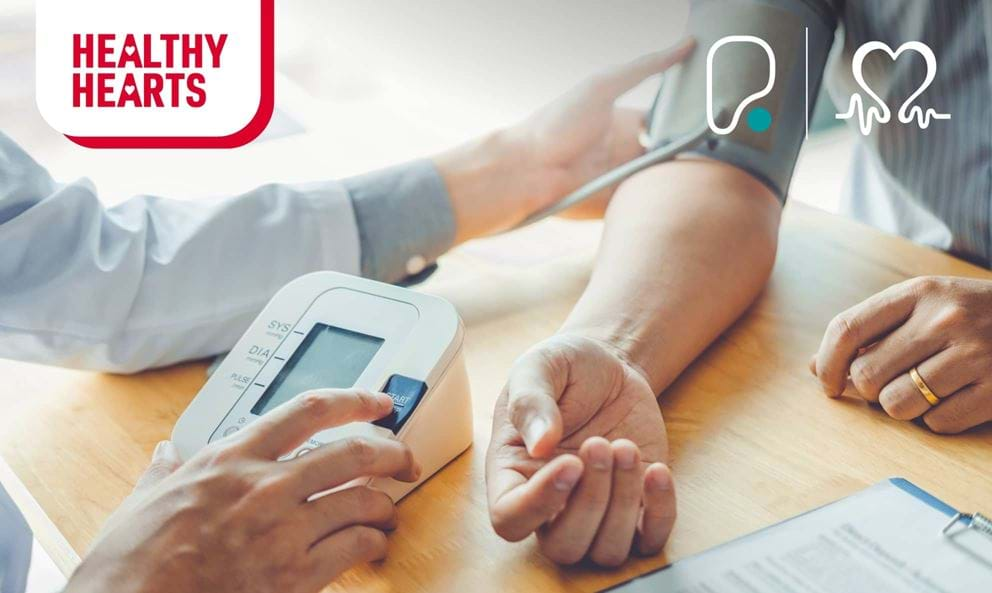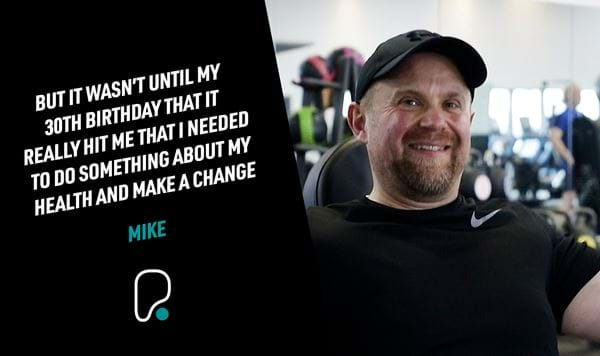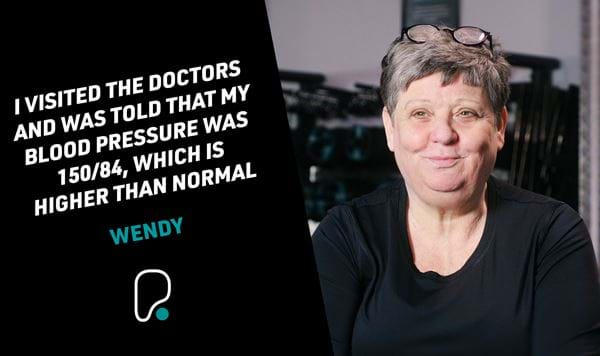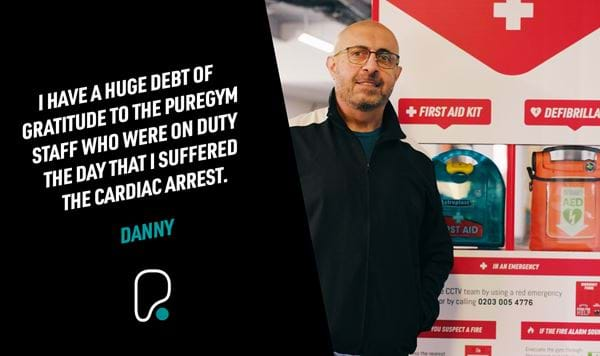Managing your Blood Pressure

High blood pressure is one of the biggest risk factors for developing heart and circulatory disease - so trying to manage your blood pressure to keep it within a healthy range is really important.
The good news is that blood pressure is the leading modifiable risk factor, meaning it can be improved through lifestyle changes in most cases. And together with the British Heart Foundation we’re going to show you how!
In this week’s educational blog, we’re discussing all things blood pressure. Learn more about what blood pressure is and get top tips from the experts at the British Heart Foundation on how to lower your blood pressure if it’s too high and reduce your risk of heart and circulatory disease.
What is high blood pressure?
Blood pressure is the pressure of blood in your arteries. You need some pressure to get the blood moving around your body and to your organs.
High blood pressure is medically referred to as hypertension and is categorised as blood pressure above 140/90mmHg (or 150/90mmHg if you’re over 80).
Your blood pressure naturally goes up and down throughout the day and night, depending on what you’re up to. It’s normal for it to go up while you’re moving about. But when your overall blood pressure is always high, even when resting, that’s when it can be bad for your heart health.
How do I know if I have high blood pressure and should I be worried if I have it?
Up to 5 million people in the UK have high blood pressure and don’t know it. That’s because most people don’t have symptoms.
The good news is that if you’ve been told you have high blood pressure there are lots of things you can do to help bring it down. If you think you might be at risk of high blood pressure, everyday lifestyle tweaks and swaps can help you to reduce your risk of future problems.
If you’re at risk of high blood pressure, you should go for yearly check-ups. You may need more regular checks if you’ve been diagnosed with it. If you haven’t had your blood pressure measured in a while, it’s a good idea to have this done.
You can get your blood pressure checked at:
- GP surgeries
- some pharmacies
- some workplaces
- an NHS health check
You can also get your blood pressure checked at PureGym – just ask a manager in your local club to find out more.
Getting your blood pressure checked is a simple and quick way to check in on your heart health. This simple test is nothing to fear and uses a blood pressure monitor which is wrapped around your upper arm and then squeezes to check the pressure your blood is flowing around your body.
How do I lower high blood pressure and reduce future health risks?
There are many contributing factors which can lead to high blood pressure. In some cases, it may be a medical condition causing high blood pressure, so it’s important to always seek advice from your doctor if you get a high blood pressure reading to check things out first.
But in most cases, high blood pressure can be caused by modifiable lifestyle factors such as eating a poor diet, not doing enough physical activity, drinking too much alcohol or smoking.
We spoke to BHF Clinical Nurse Ruth Goss and Beth Trueman, Personal Trainer at PureGym to get their 5 top tips for changing your lifestyle to reduce future health risks:
1. Try to be more active
Keeping active is a brilliant way to help keep your blood pressure down. It has many other fantastic benefits for your heart and overall wellbeing. We recommend you do some form of movement every day and build up to at least 150 minutes of moderate intensity exercise each week.
You’ve made a brilliant first step to getting more active by joining our free 8-week Healthy Hearts Programme, which has been created by fitness professionals at PureGym and the medical experts at BHF.
Why not also try including one or two of the following:
- Half an hour brisk walk everyday
- Taking the stairs when they’re available
- Gardening or cleaning
- Fun, social activities like dance classes or walking clubs
- Taking 5-minute activity bursts whenever you’ve been sitting for an hour
- Strength, flexibility, and mobility building exercise like yoga or pilates
Remember, you don’t need to run a marathon right away or go to the gym every day to be more active. Moving more for your heart health is all about taking small gradual steps to increase your physical activity levels from where they are right now.
Personal Trainer Beth explains that “Aiming for more movement day-to-day can make a huge difference for your physical and mental health, no matter how big or small. Small changes add up to big results. But it’s important to try and find types of physical activity that you enjoy, as you’re more likely to stick to it in the long term if it’s fun!”
2. Keeping to a healthy weight
Although health isn’t all about the number on the scales, managing your weight can be a way to look after your heart health.
Ruth at the British Heart Foundation shares that “for many people, losing weight is the key to getting their blood pressure down to a normal level. Doing this means there will be less strain on your heart and arteries to circulate blood around your body, reducing your risk of having a stroke or a heart attack.”
If you do feel like you need to lose weight, this should be done through a combination of gradual and healthy lifestyle changes rather than excessive calorie restriction or fad diets.
Some of our go to tips if you’re looking to lose weight in a healthy and sustainable way are:
- Focus on eating healthier, thinking about what nutritious foods you can add into your diet rather than focusing solely on what you should ‘cut out’
- Set realistic weight loss goals that don’t compromise your health – it should be slow and steady to be sustainable
- Keep an eye on your portion sizes
- Try to start small with simple swaps to cut back on overall calorie intake. Such as eating fruit instead of chocolate biscuits, trying sugar-free drinks rather than drinks with added sugar or opting to try lower fat options over full fat alternatives
- Prepare for the obstacles of a busy day by preparing food at home so you can make healthy choices when out and about
- Look to increase your physical activity and overall daily movement to optimise your heart and circulatory system
- If you have a day off don’t be hard on yourself, just get back to your routine the next day
3. Try to eat a healthy balanced diet
Eating more foods that benefit your overall health will play a huge part in keeping your blood pressure optimal.
We’ve spoken to dietitians at the BHF to come up with the following essential tips for a healthy, balanced diet:
- Eat less saturated fats: This includes food like takeaways, pastries, cakes, biscuits, and most processed foods. Instead, you could opt for leaner cuts of meat, cut back on processed meats, snack on fruit and nuts, choose fats like oily fish and avocados, cook with unsaturated oils like olive oil.
- Add extra vegetables to your meals: Why not try grated apple in your morning porridge, or chopped banana and peanut butter on wholemeal toast as a pre-workout fuel? We also love bulking out pasta sauces and stews with vegetables. Simple swaps will make sure you get all the benefits fruit and veg can offer!
- Eat more fibre: Fibre is great for your digestion and heart health, but many of us don’t get enough. Increase your fibre intake by opting for wholegrain breads and wholewheat pasta and brown rice. Also try to swap sugary cereals for oats and try to eat more beans, lentils, and other pulses – try lentil curries or having beans with your jacket potato (skin on).
- Eat less salt: Research has shown a clear link between high salt diets and high blood pressure, so cutting back on your salt intake can benefit your heart health. With most of the salt we eat coming from foods that we buy, checking food labels is really important. Go for products labelled low salt or sodium, try to cook at home more and season your food with things like lemon juice, herbs, and spices rather than salt.
- Eat your fruit: Many of us go for a fizzy drink or juice when craving a sweet kick. But even though a whole piece of fruit will also contain natural sugars it will be less than in a glass of juice, plus it will also come with fibre that helps to fill you up.
4. Manage stress
Stress can put lots of strain on your body and could affect high blood pressure. Everyone gets stressed and it’s normal to have some stress as we cope with life’s challenges. However, if you have some tools to help you manage stress, you can help your body to cope with the physical pressure of it.
Our top tips include:
- Confiding in friends and family when you’re feeling stressed - it can be much worse when dealing with stress alone
- Taking a break from work or stressful situations when you can
- Doing something you enjoy and that can help to clear a stressed mind, like reading a book or going for a walk
- Trying something to physically release stress like yoga or meditation
Doing some exercise to increase your happy hormones
5. Stop smoking
Smoking increases blood pressure as it causes fatty material to build up in your arteries. Most people who smoke know it’s bad but if you have high blood pressure, your doctor will probably advise you to stop immediately.
There’s help available so if you’re struggling, make an appointment with your GP, speak to your pharmacist or visit Remember to reward yourself for your hard work by saving the money you’d spend on cigarettes so you can treat yourself after a few months.
Want to learn more?
Interested in finding out more about reducing high blood pressure? The experts at the British Heart Foundation have created an extensive information hub to help you manage your high blood pressure.
Want to join the Healthy Hearts Programme?
If you’re not part of the Healthy Hearts Programme yet, join our 8-week programme designed to help you look after your heart health. [full marketing copy to be added about the programme when signed off]


